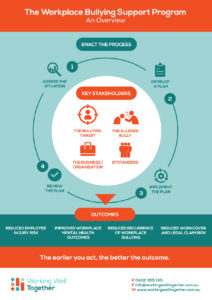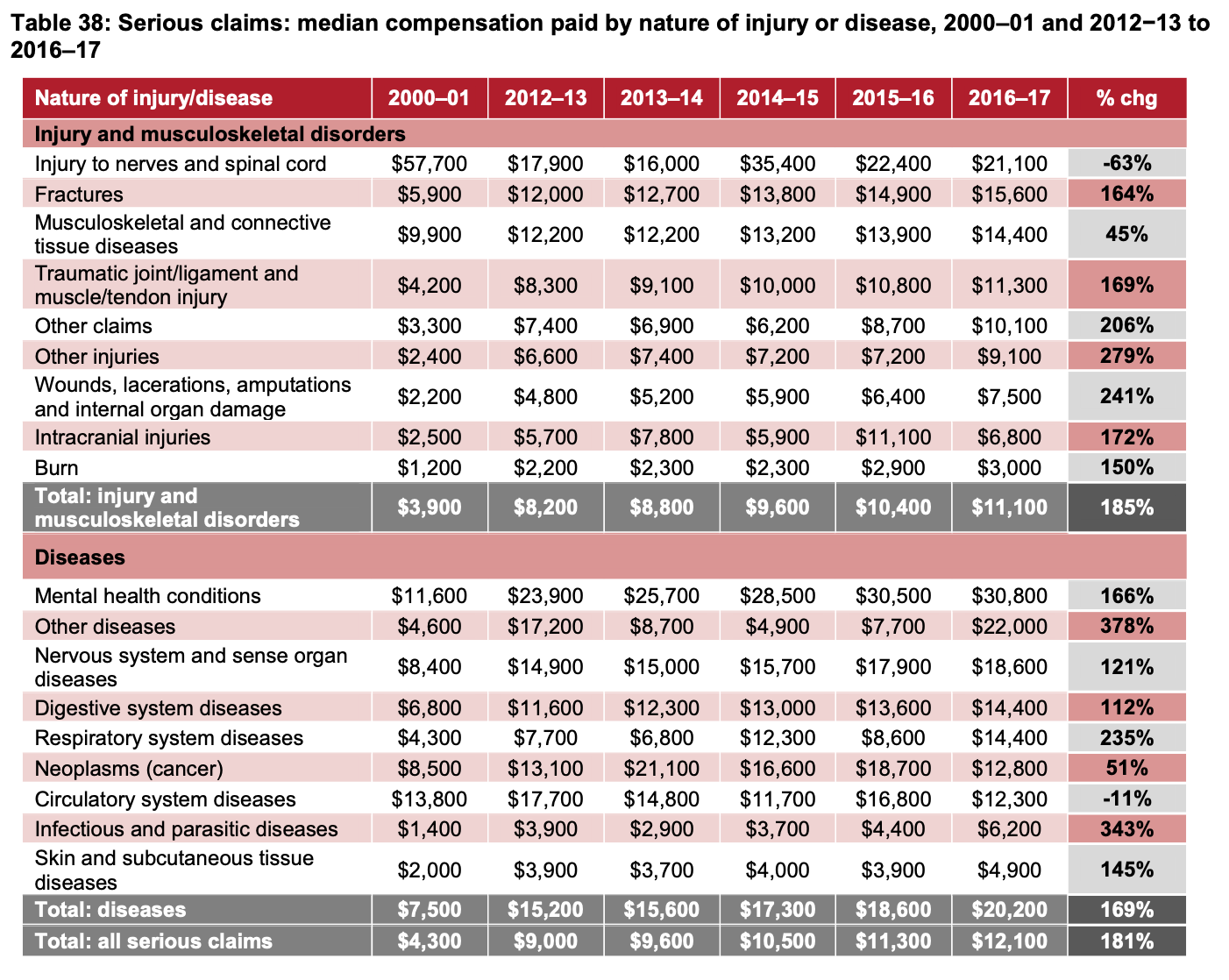The numbers are going up in relation to workplace mental health and it is not in a good way for businesses around Australia.
Safework Australia has recently released it’s 2017-18 statistical report on Workers Compensation and the trends are not healthy when it comes to workplace mental health. In this Safework Australia report, the data on mental health incorporates conditions resulting from workplace bullying, as it doesn’t report separately on that data.
A key question is what do we need to do to create safer, mentally healthy workplaces and reverse this trend.
The Data on Mental Health Claims
Overall, the data shows that the number of serious claims have decreased by 20% between 2000/01 and 2016/17. This makes the questions over workplace mental health injuries all the more interesting. If we look at mental health injuries alone, the number of mental health claims have increased by 15% in the same time frame.
According to the report, serious mental health claims comprise 7.5% of all serious injury claims, but here is where the picture becomes disproportionate. The work time lost for mental health injuries in 2000-01 was 11.2 weeks. The statistics for 2016-17 show that the work time lost was 17.3 weeks, a 54% increased in the time period. This compares to work time lost of 5.8 weeks across all serious claims.
The median compensation paid for mental health conditions is the highest across all groupings at $30800 in 2016-17, an increase of 166% on the 2000-01 figure. This compares to a $12100 median across all serious claims.
Mental health claims, while a lower proportion of claims are much longer and more expensive than the other physical injury claims.
Can we reverse this trend?
If we are going to reverse this trend, particularly when it comes to workplace bullying, we need to modify our approaches in different ways.
Researchers over recent years, of which Australia has been a leader, have pointed to changing and developing workplaces within safety based approaches. Michelle Tuckey from the University of South Australia has focused much on her research and work on the impact of mitigating mental health risk through workplaces better coordination and administration of working hours, improvements in managing work performance, and better shaping of relationships and the work environment.
However, change to approaches and systems takes time and, in the meantime, employees are still being injured and making claims.
This is where individualised approaches to support has it’s role. Employers can engage support to prevent and/or minimise workplace bullying injury and it’s Workcover related costs.
The earlier you act, the better the outcome for your business and your employee.
Are you interested in providing support and preventing a Workcover bullying related claim?
Contact us today for a confidential discussion on how we can help you.
Learn more about our Workplace Bullying Support Program


